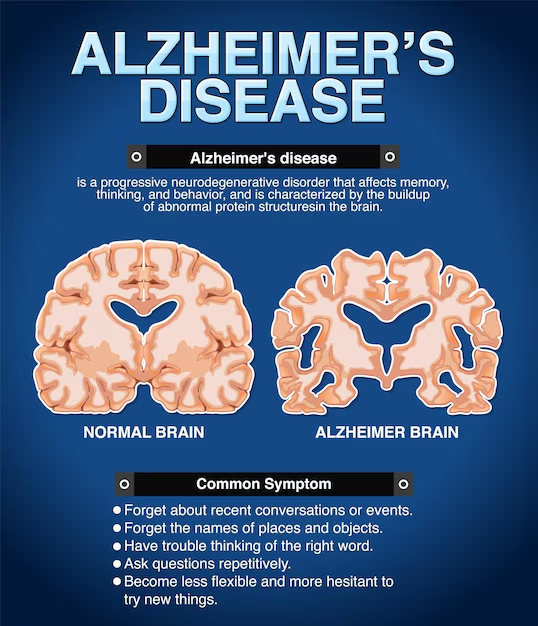Has discount
❌
Made in
English
Last updated at
Thu, 01-Jan-1970
Level
Intermediate
Total lessons
0
Total duration
00:00:00 Hours
Number of reviews
0
Total enrolment
0
Avg rating
Short description
Power Foods for the Brain | Neal Barnard | TEDxBismarck
-
-
Requirements
- here are common requirements and topics that might be covered in such a course: 1. Basic Educational Requirements Undergraduate Degree: Many programs related to Alzheimer’s disease require a background in fields such as healthcare, medicine, nursing, psychology, or neuroscience. A bachelor’s degree in a related field is often required for advanced study. Clinical Background: Some advanced courses might be designed specifically for clinicians, caregivers, or healthcare providers who are already working in fields related to aging, gerontology, or neurology. 2. Prerequisite Knowledge Anatomy and Physiology: Understanding the basic structure and function of the human brain is essential. Psychology or Behavioral Science: Courses in psychology can provide insights into cognitive and behavioral changes associated with Alzheimer’s. Basic Pharmacology: A background in pharmacology is beneficial for understanding Alzheimer’s treatments and medications. Healthcare Ethics: Courses in ethics prepare students for the sensitive nature of treating and managing patients with Alzheimer's. 3. Core Topics in an Alzheimer's Disease Course Understanding Alzheimer’s Disease: Definition and difference between Alzheimer’s and other types of dementia. Symptoms and progression of Alzheimer’s across stages (mild, moderate, severe). Neuropathology: Study of brain changes in Alzheimer’s, including amyloid plaques, tau tangles, and neurodegeneration. Understanding biomarkers and their role in diagnosis. Diagnosis and Assessment: Diagnostic criteria for Alzheimer’s and tools like MRI, PET scans, and cognitive assessments. Role of biomarkers in early diagnosis. Risk Factors and Genetics: Study of genetic predispositions, such as APOE-e4 gene, and other risk factors. Environmental and lifestyle factors that influence Alzheimer’s development. Treatment Approaches: Overview of FDA-approved drugs for symptom management (e.g., cholinesterase inhibitors). Experimental treatments and recent advancements in therapies. Non-pharmacological interventions, such as cognitive stimulation, physical exercise, and dietary approaches. Patient Care and Management: Skills for managing the daily needs of Alzheimer’s patients, including communication, nutrition, and personal care. Addressing behavioral symptoms like aggression, agitation, and wandering. Support for Caregivers: Understanding caregiver burden and support systems. Resources for caregiver training, respite care, and stress management. Ethics and Legal Issues: Ethical considerations for patient autonomy and end-of-life decisions. Legal planning, including power of attorney, wills, and long-term care arrangements. Public Health and Policy: Alzheimer’s as a public health issue: prevalence, economic impact, and societal challenges. Overview of public policy, healthcare costs, and advocacy. 4. Hands-On and Clinical Training (If Applicable) Practical Experience: Some courses, especially those for healthcare providers, may include clinical rotations, internships, or shadowing experiences in dementia care facilities. Simulation Labs: Students may engage in simulation exercises to learn communication and patient care skills in a controlled environment.
Outcomes
- Upon completing an Alzheimer's Disease course, participants typically: Understand the biological, psychological, and social dimensions of Alzheimer’s disease. Are able to recognize early symptoms and understand diagnostic methods. Gain skills in managing behavioral and cognitive symptoms in patients. Learn how to support caregivers and advocate for ethical and compassionate care. Are informed about the latest research, potential treatments, and public policy related to Alzheimer's. Are prepared to approach Alzheimer’s patients with sensitivity, empathy, and professionalism.

Write a public review